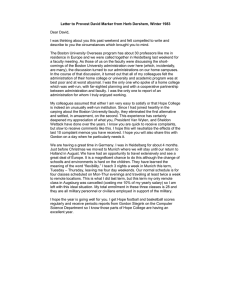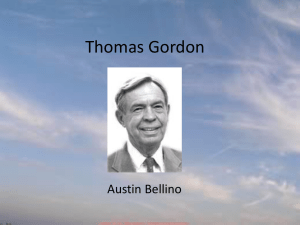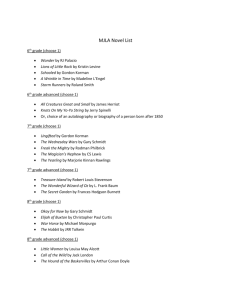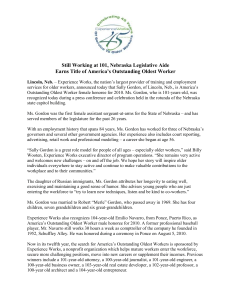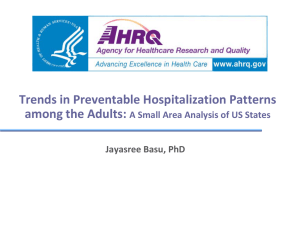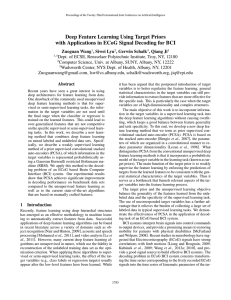The Autoclave pcsa writing competition Second writing contest inspires student scientists
advertisement
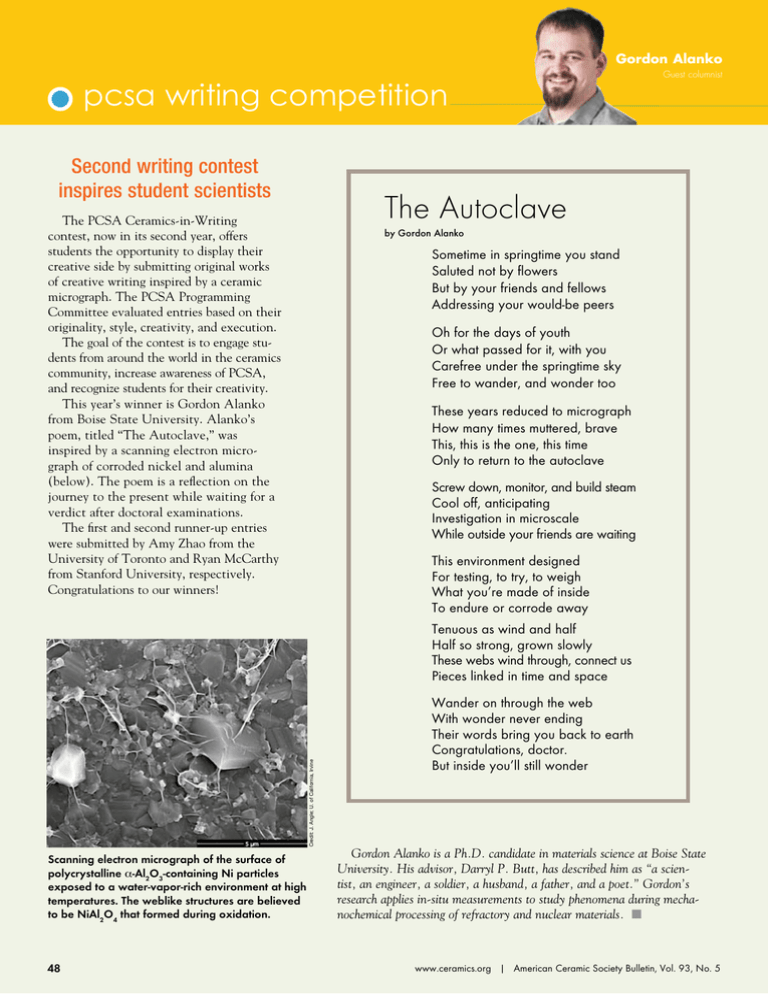
Gordon Alanko pcsa writing competition Second writing contest inspires student scientists Guest columnist The Autoclave The PCSA Ceramics-in-Writing contest, now in its second year, offers students the opportunity to display their creative side by submitting original works of creative writing inspired by a ceramic micrograph. The PCSA Programming Committee evaluated entries based on their originality, style, creativity, and execution. The goal of the contest is to engage students from around the world in the ceramics community, increase awareness of PCSA, and recognize students for their creativity. This year’s winner is Gordon Alanko from Boise State University. Alanko’s poem, titled “The Autoclave,” was inspired by a scanning electron micrograph of corroded nickel and alumina (below). The poem is a reflection on the journey to the present while waiting for a verdict after doctoral examinations. The first and second runner-up entries were submitted by Amy Zhao from the University of Toronto and Ryan McCarthy from Stanford University, respectively. Congratulations to our winners! by Gordon Alanko Sometime in springtime you stand Saluted not by flowers But by your friends and fellows Addressing your would-be peers Oh for the days of youth Or what passed for it, with you Carefree under the springtime sky Free to wander, and wonder too These years reduced to micrograph How many times muttered, brave This, this is the one, this time Only to return to the autoclave Screw down, monitor, and build steam Cool off, anticipating Investigation in microscale While outside your friends are waiting This environment designed For testing, to try, to weigh What you’re made of inside To endure or corrode away Credit: J. Angle; U. of California, Irvine Tenuous as wind and half Half so strong, grown slowly These webs wind through, connect us Pieces linked in time and space Scanning electron micrograph of the surface of polycrystalline α-Al2O3-containing Ni particles exposed to a water-vapor-rich environment at high temperatures. The weblike structures are believed to be NiAl2O4 that formed during oxidation. 48 Wander on through the web With wonder never ending Their words bring you back to earth Congratulations, doctor. But inside you’ll still wonder Gordon Alanko is a Ph.D. candidate in materials science at Boise State University. His advisor, Darryl P. Butt, has described him as “a scientist, an engineer, a soldier, a husband, a father, and a poet.” Gordon’s research applies in-situ measurements to study phenomena during mechanochemical processing of refractory and nuclear materials. n www.ceramics.org | American Ceramic Society Bulletin, Vol. 93, No. 5
